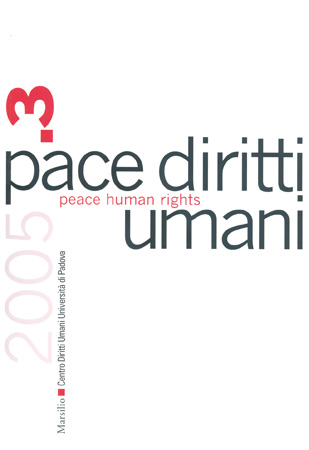Raccolte

Stati di eccezione, misure anti-terrorismo e tutela dei diritti umani. Il caso degli Stati Uniti e della Gran Bretagna dopo l’11 settembre 2001
- Contenuto in
- Pace diritti umani - Peace Human Rights, 3/2005
- Tipologia pubblicazione
- Articolo / Saggio
- Pagine
- 69-93
- Lingua
- IT
State of Emergency, Anti-Terrorism Measures and Human Rights Defence. Developments in the USA and the UK after 11 September 2001 Riccardo Crestani
The consequences of the attacks on 11 September go beyond the wars in Afghanistan, Iraq and the war on terror. They became a turning point in Western countries concerning measures for the defence of human rights. The new measures have given rise to the suspicion that governments might curb people’s freedom too easily when faced with the threat of terrorist attacks. But what exactly did happen following 9/11 in Western democracies?
In the attempt to answer the question the author considers the position of the United States, as the only superpower on the international arena and leader for Western states after the Second World War. On the other hand Great Britain is chosen as an example of the US’s most faithful ally but which is also a European country that is part of the European Convention on Human Rights. The case analysis is preceded by a survey of the pertinent international norms, in particular article 4 of the International Covenant on Civil and Political Rights, and article 15 of the European Convention on Human Rights, focusing on derogations in states of emergency. As regards the USA measures, critical analysis is carried out on the PATRIOT Act and on the debate concerning its renewal, while in the case of the UK focus is on Part 4 of the Anti-Terrorism, Crime and Security Act, on the Prevention of Terrorism Act and proposals following the attacks in July 2005, including the use of torture.

